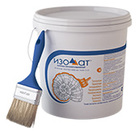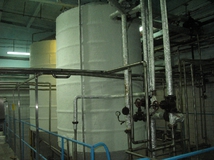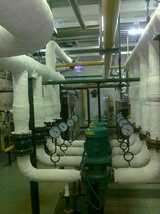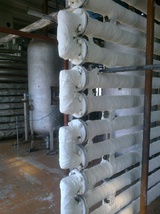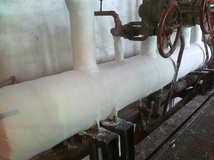Heat insulation in agriculture and food industry
At agricultural and food industry objects used for storage, processing and production of food, there are increased requirements for insulation materials. Materials used for heat insulation should have high environmental performance - there should be no emission of harmful substances to humans and animals.
It is also important that food and components for its production are not contaminated with dust, fibers, coming out at installation of loose insulation, and insulation materials themselves do not become the cause of excess condensation being the source of quickly spreading fungi and mold. High requirements of sanitary and epidemiological control make it difficult to use at such objects traditional insulating materials, such as mineral wool, polyurethane foam, polystyrene plates, which often do not have the necessary environmental characteristics.
Isollat liquid ceramic insulation coating in this respect acts as an alternative to traditional insulation materials. A distinctive feature of this coating is its environmental friendliness. Isollat coating does not contain components hazardous to human and animal health. High speed of its application to the insulated surface by simple painting allows efficient treating large areas without interrupting existing production, and liquid consistency of the material prevents cold bridges being the main cause of ruinous condensate.
Advantages of Isollat insulation:
- environmental friendliness;
- it is liquid;
- simplicity of use: the coating is applied by brush, spatula, and sprayed using high pressure painting units, if necessary;
- prevents condensation;
- it is possible to apply it to complicated configurations of surfaces;
- it fits closely to the insulated surface;
- it lasts long - more than 10 years.
- color matching is possible.



